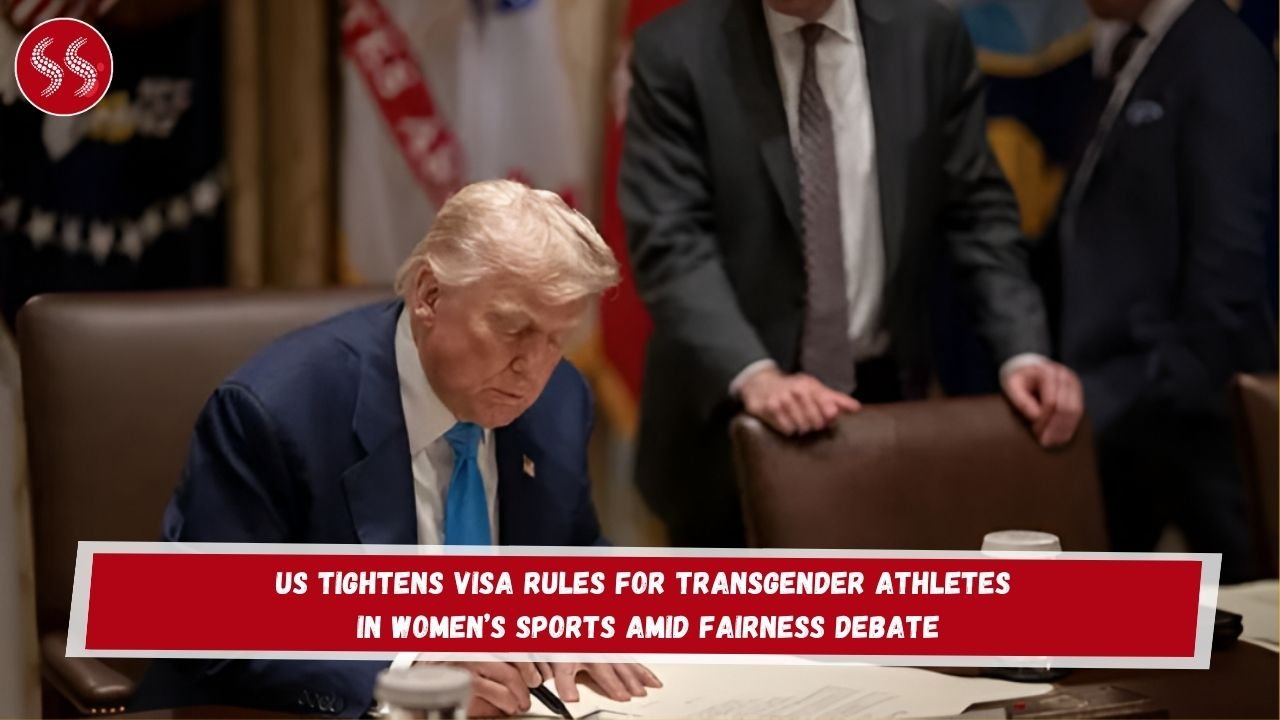The U.S. Citizenship and Immigration Services (USCIS) has updated its policy, and the change is making headlines: US Tightens Visa Rules for Transgender Athletes. This new move will impact transgender women who want to compete in women’s sports in the U.S., as their eligibility for certain visas may now be affected.
Under the revised guidelines, USCIS will treat the fact that a transgender woman (born male) has been competing in women’s sports as a negative factor during visa evaluations. The policy applies to specific visa types such as the O-1A (for athletes with extraordinary ability), and green cards like the EB-1 and EB-2, which are meant for highly skilled individuals.
The announcement comes as US Tightens Visa Rules for Transgender Athletes in line with broader efforts by former President Donald Trump’s administration to limit transgender participation in women’s sports. This policy mirrors similar actions already implemented in various U.S. states and is now being enforced at the federal immigration level.
READ MORE:
Fairness, Safety, and Respect in Sports
Explaining the update, USCIS spokesperson Matthew Tragesser said the goal is to uphold fairness in women’s sports. He emphasized that US Tightens Visa Rules for Transgender Athletes to prevent unfair advantages that biological males might have over female competitors.
He stated, “USCIS is closing the loophole for foreign male athletes whose only chance at winning elite sports is to change their gender identity and leverage their biological advantages against women.”
Tragesser stressed that the U.S. wants to ensure that only biological women are granted visas to compete in women’s sports. As US Tightens Visa Rules for Transgender Athletes, immigration officers will now consider transgender participation in female events as a concern when reviewing applications.
This change doesn’t mean all transgender athletes will be denied visas. But for those seeking to compete in women’s events, it will be harder to qualify under visa categories like O-1A, EB-1, or EB-2.
Aligning with Executive Orders and National Policies

The decision to tighten these rules came shortly after President Trump signed the “Keeping Men Out of Women’s Sports” executive order in February. As US Tightens Visa Rules for Transgender Athletes, this order strengthens the government’s stance on keeping biological males out of female athletic competitions.
Supporters of the order argue that this is necessary to protect fairness and integrity in women’s sports. They believe transgender participation, especially in elite sports, can put female athletes at a disadvantage.
On the other hand, critics claim that as US Tightens Visa Rules for Transgender Athletes, it could lead to discrimination and harm the rights of a small, already marginalized group. Human rights organizations say such policies unfairly target transgender individuals who just want a chance to compete.
Still, the current administration has made it clear that its focus is on preserving traditional sports categories based on biological sex. And the move to restrict visa approvals further solidifies this position.
Olympic Committees and Immigration Policies in Sync
Last month, the United States Olympic & Paralympic Committee (USOPC) adjusted its own rules to reflect Trump’s executive order. As US Tightens Visa Rules for Transgender Athletes, even top sports organizations are making similar changes.
The USOPC’s new stance now officially bars transgender women from competing in U.S. women’s Olympic teams and events. This aligns with the immigration updates and sends a strong message that the policy applies not just at the border but also within national sports institutions.
The effect of this immigration change is already being felt across the sports community. Athletes from other countries who are transgender and want to compete in the U.S. may find it difficult to obtain a visa. As US Tightens Visa Rules for Transgender Athletes, many athletes may look to other countries for opportunities to compete.
This change is likely to have long-term effects, especially with major sporting events like the 2026 FIFA World Cup and 2028 Summer Olympics coming up in the U.S. Whether or not future administrations will reverse the policy remains to be seen, but for now, US Tightens Visa Rules for Transgender Athletes, and the rule is being enforced.
As this issue continues to spark debate, one thing is clear: US Tightens Visa Rules for Transgender Athletes is not just a headline, it’s a turning point in how sports and immigration intersect in the United States.
SEE MORE:


